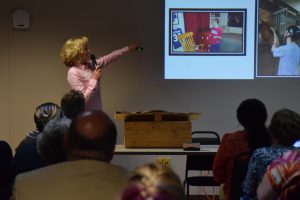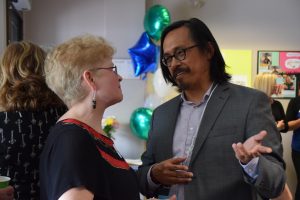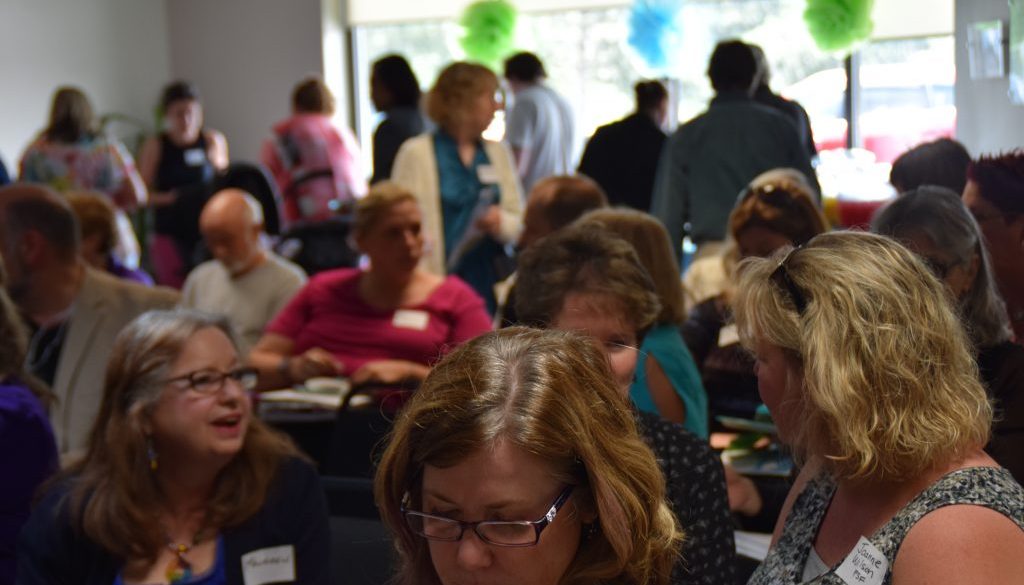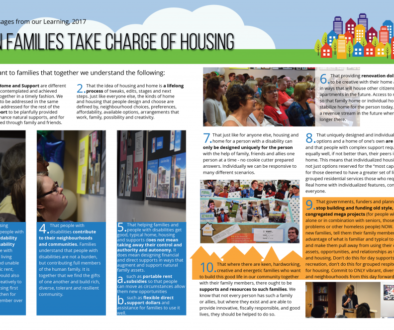Innovative Housing Forum: When Families Take Charge of Housing
On Tuesday June 27th 2017, over 80+ individuals alongside their families, community members and government officials gathered together to celebrate the collaborative work of families and DAFRS’ successes gained through the Housing Project: Housing is a Community Issue. The Innovative Housing Forum: When Families Take Charge of Housing, stemmed from the 2-year project that was developed in partnership with the Brockville Association for Community Involvement and focuses on the ways in which all kinds of families manage to creatively bring about affordable, accessible housing in our local communities. One person at a time.
The energy from the family stories was uplifting and contagious. They inspired audience members to imagine the true comforts of home that are possible for people with disabilities. Attendees could visualize the authentic relationships found only in typical ordinary communities. The stories allowed them to bear witness to the tangible outcomes that occur when families have opportunity to come together using a shared principled approach.

The key messages that everyone took home from this innovative housing forum evolve around the importance to families that together we understand the following:
- Housing, Home and Support are different things, and best contemplated and achieved separately. Government and funds may augment some of these but often we need for housing to be addressed in ways that housing is addressed for the rest of the population, for support to be augmented through MCSS to enhance natural supports, and for home to be developed through family and friends.
- Understand that most housing challenges for people with disabilities are affordability challenges – not disability challenges. If people with disabilities were not living mostly in poverty and unable to afford even a basic rent, then their families would also not have to juggle creatively to try to figure out housing first for themselves and then for this adult family member over time.
- Understand that people with disabilities contribute to their neighbourhoods and communities. Families understand that people with disabilities are not essentially a burden, but a contributing full member of the human family. It is together that we find the gifts of one another and build rich, diverse, tolerant and resilient community.
- Understand that that helping families and people with disabilities get good, decent, typical home, housing and supports does not mean taking away their control and authority and autonomy. It does mean designing financial and direct supports in ways that augment and support natural family assets.
- such as portable subsidies so that people can move as circumstances allow them new opportunities
- such as flexible direct support dollars and support to make use of these
- Understand that providing renovation dollars allows families to be creative with their home and space today in ways that will house other citizens in second apartments in the future. Access to renovation dollars so that family home or individual home renovations stabilize home for the person today, and perhaps allow a revenue stream in the future when parents are no longer there.
- Understand that governments, funders and planners need to stop building and funding old style, high profile congregated mega projects (for people with disabilities alone or in combination with seniors, those with mental health problems or other homeless people) NOW. These confuse new families. These tell them their family members cannot take advantage of what is familiar and typical to us all in housing, and make them pull away from using their own creativity, assets, opportunities, and relationships as the core of home and housing. Don’t do this for day supports. Don’t do this for recreation. Don’t do this for grouped respite and don’t do this for housing. Commit to ONLY vibrant, diverse typical housing and neighbourhoods from this day forward.
- There will always be families with a range of interest and ability in imagining better for a good life in community for their family members. Furthermore,there are some people with no family or allied connections. But where there are keen, hardworking, creative and energetic families who want to build this good life in our community together with their family members, there ought to be supports, rewards and resources.
Invited guests impacted dedicated families with their shared concerns

Forum attendees were encouraged by political voices who stated commitment to tackling issues of affordable housing, renovation dollars and portable subsidies; and policy makers who recognize the need to contribute to families who are creatively crafting their own trails. A home of one’s own and living in a vibrant neighbourhood is the vision that continues to be close to the hearts and on the minds of many families involved with DAFRS.
Contributions from families made this innovative housing forum possible. In appreciation, we would like to thank: Allan MacGillivray who guided the process of the day as M.C.; Dawn Jones, Sandy Ciarlariello, Wanda Huntington and James Phillips for eloquently sharing their stories; Libby McMaster for sharing the journey of Intentionally Built Communities (IBC); Carron Jenson for vibrantly decorating the Gathering Place and baking “Imagining Home” cupcakes; Sue McLellan and Virginia Salter for organizing the refreshments; and all of the families who dug in creatively making posters and participating in filming to illustrate their journeys.


